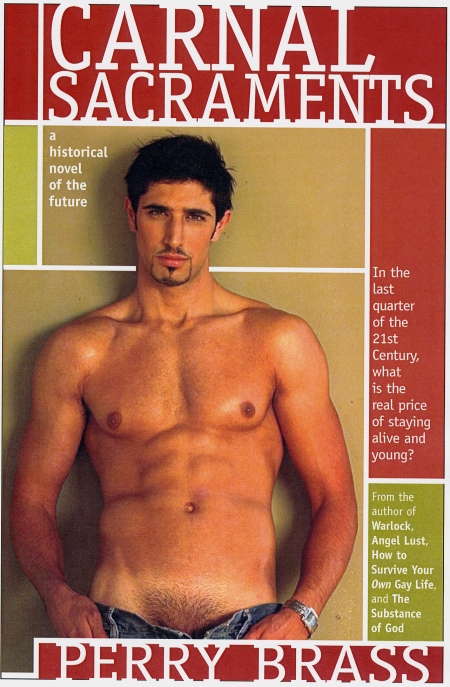My Facebook page is “no longer available.” This means that my 2,200 Facebook friends will have to go someplace else to find out about my books, and what I am doing as a writer. I learned 2 weeks ago that I have been permanently “blocked” from Facebook. Why, frankly, I have no idea except that it must have to do with the books I write and publish that have been banned “forever” from being advertised on Facebook because of their titles and possibly their covers—namely, The Manly Art of Seduction and the follow-up book The Manly Pursuit of Desire and Love. Both of these books are available on Amazon. The Manly Art of Seduction has gotten great reviews, was an Amazon bestseller in several categories, received a Gold Medal IPPY award and other awards, and is now available as an audio book on Audible.com, and in Portuguese. It is currently being translated into Spanish.
After I was told by the completely faceless “Facebook Team” that The Manly Art of Seduction violated Facebook’s usage code because of the word “Seduction” in it, and that I could never advertise this “product” on Facebook, I tried futilely to appeal their decision (since you have no idea where this decision comes from: you never actually deal with people with names). I explained that there are dozens, maybe hundreds, of books, movies, and TV programs with the word “Seduction” in it. It was ridiculous.
I was told that there was no appeal—this decision would stand forever. After I posted word about this on my Facebook pages, friends suggested that I could still put up information about the book on my page, and it would be a good idea to include the cover in my profile picture. I did. Nothing happened.
Still, hope springs eternal, and I figured that my follow-up book The Manly Pursuit of Desire and Love which did not have the word “seduction” in its title would be permissible. It wasn’t. After I tried to “boost” a post about The Manly Pursuit (this is Facebookese for advertise the book) I was told, point blank, by the famous Facebook Team, that the word “desire” itself was not allowed in any advertisement of any product on Facebook, therefore advertising this book was also not permitted. In both situations, the books were categorized as banned products, like sex aids or enhancers, and advertising them was refused on Facebook.
This was done by people who hadn’t read or researched the books—like Salmon Rushdie’s horrifying fatwa. Or maybe by computer robots that set off an alarm, or in some backroom in India which decided it was not going to allow books of this sort into any country.
Being busy, as writers are, I did post word about these books (and other books of mine) on my Facebook page, and I’m sure it got onto the pages of my 2,200 Facebook pals. Then for the last month I didn’t even go on Facebook.
I was in Cuba for 10 days, from Feb 9 – 19, and when you are on that island, Facebook is off limits. At a hotel with Wifi in Havana, I tried to log into a friend’s post mentioning me, but got a message that Facebook and Cuba are not on good terms. Afterwards, I spent three days in Fort Lauderdale, Florida, with friends, and during this time forgot about Facebook completely.
When I got back, I was too busy catching up after being away to pay attention to Facebook. I also came down with bronchitis (I’m still being treated for this), which put me away from Facebook and my pals there even longer. Then, about a week ago, after getting a slew of Facebook emails directing me to log onto the pages of friends sharing updates with me, I started hitting links that would send me directly into Mark Zuckerberg’s empire.
When I did, I got this message.
We removed the content that was posted
Under this was a link to this message:
We restrict the display of nudity. Some descriptions of sexual acts may also be removed. These restrictions on the display of both nudity and sexual activity also apply to digitally created content unless the content is posted for educational, humorous or satirical purposes.
We remove content that threatens or promotes sexual violence or exploitation. This includes solicitation of sexual material, any sexual content involving minors, threats to share intimate images and offers of sexual services. Where appropriate, we refer this content to law enforcement.
To learn more about the kinds of messages and posts that are allowed on Facebook, please review the Facebook Community Standards.
I couldn’t figure this out. Why were some of my 2,400 Facebook friends’ posts being removed so that I could not get to their links? After enough attempts with my friends, I tried my own page, and realized it was the opposite. I had now been completely blocked.
Totally, absolutely, blocked from Facebook.
As in, I cannot even get onto Facebook to protest being blocked.
I started Googling like mad what to do when you are blocked from Facebook, and learned a few things. Facebook has recently instituted a new policy that it can block anyone at any time without warning or notice. In addition, it is enforcing a new series of “global community standards,” meaning anyone in any country can now complain about your content. So if, in say, Timbuktu, someone is offended by your “content,” it can be blocked by the “Facebook Team.”
This has meant that if in, say, Australia, as recently happened, someone is “offended” by an image of middle-aged barechested Aboriginal women showing their painted nipples, this kind of image can be censored—and even blocked. I guess this means that my books and I no longer stand a chance.
Facebook also states that A), only they can remove the block, so it’s totally futile to appeal it. B) If, somehow, they do decide to remove the block on you and your page, they will do so in their own time with no communication with you.
And C) even better: The actual cause of the block will never be known to you.
Now this may not mean much to people who regard Facebook as ridiculous and a waste of time (something Facebook works to keep happening; or as Mark Zuckerberg has always maintained: “We want to keep you there”), but in reality it is at this moment the world’s largest social media organization. And, in our Brave New Post-bookstore World, for many people a major route to “discoverability” for books and other kinds of information.
I also discovered through Google (using a backdoor into Facebook) that the site also has a new “Unpermitted Link” engine. Using a product’s link, you can do a search for products not allowed on Facebook, and they will (graciously) remove these links off your Facebook page. The only problem is that when I tried to do this with Amazon links for my books, I got this:
We removed the content that was posted
(Meaning: I cannot get into Facebook to unblock myself—in any way. So, go back to Square One, dope.)
Check . . . and mate.
There is a longstanding history of homophobia involved with this—I have seen straight (i.e., heterosexual) “dating” books openly advertised on Facebook that guarantee success with the opposite sex (usually meaning women), and that are plainly exploitative. I have seen countless ads for men’s underwear and women’s “scanties” that make anything I’ve posted (as well as my book covers) look like stuff from the Daughters of the American Revolution. But we are dealing here with permissible products and my books are not in that category.
I also know that Facebook has a history of harassing gay men and their sites, a good example being the Australian magazine DNA which has received numerous warnings simply for showing on their covers barechested guys in Speedos. Many of my friends have also received warnings from Facebook regarding pictures they have posted showing stuff like an uncovered fanny or two. One of them showed photos of a pool party with a guy in all fun being thrown in and losing his suit—so we saw a little bit of skin from the rear. He was warned severely by Facebook for doing this.
The interesting thing is that I have never received any kind of warning. Not once. So this makes me feel that this action might have been pre-emptive. Rather than go through any kind of dialogue with me (something corporations like Facebook hate, thus their huge walls of protection), they simply blocked me before I could do anything.
I have also heard that it could be that my Facebook page was hacked—in effect unallowable stuff (usually “porn”) could have appeared on my page when I was in Cuba and unable to do anything about it. However, I was given no warning of this (see above about No Warning) so if my page was hacked, and then blocked, I’m now in even worse shape with Facebook.
In other words, I’ve been hacked, I’ve had no warning about it from Facebook, and I’ll have to figure out how to be unhacked as well.
A new wrinkle: every time I have tried to access any Facebook page—even for “guidance” from Facebook on these “issues”—I have been told that I have to log in with my password. When I have tried it, my password has been rejected, and I’ve been told I have to change the password. They have allowed me to change the password, and using the new password to see if there is any change in the block, I am told that a new password must be used every time I try to log in. Then I am directed to the same message:
We removed the content that was posted.
What this means for other Facebook users, especially writers, is clear to me: You can have what you do censored at any moment. This will be done to protect any “innocents” who might stumble on your page, and the judgment to do this will be done by people you will never see in countries where America’s more open culture and freedoms are anathema.
I feel bad about this, because people all over the globe have come to me through Facebook as I am an openly gay writer in the US. Some of them have read my books on Kindle or other media, and I am gratified for this. I am not a “pornographer,” although my work is sexually frank—but certainly not any more frank than any number of other commercially available books. The covers of my books often feature barechested men, but then so do thousands of book covers, especially of women’s romance books.
The real problem here is simply homophobia on a corporate level, censorship of course, and people applying “community standards” that have no place in an open society. This is really shameful.
There is something else to understand here, and it is very important.
Facebook is not a free service. It is a huge, multi-national corporation making billions of dollars off advertising, and the reason it can charge this kind of money is because of the content you provide if you are a Facebook member. (In fact, they can use this content in any way they wish.) You are using your time to provide this valuable content and your attention. Facebook is selling that attention to advertisers. (I repeat, as Zuckerberg says: “We’re going to keep you on the site.”)
In this vein, strangely, and completely contradictory, Facebook still sends me regular requests to get back onto their site, to update my pages, to “see what your friends are doing,” to “visit your page,” even as I am being completely blocked. They WANT you back to create more content—to boost more ad revenue—on their “free” site.
Therefore the argument that as a “free” social networking service they have the right to do what they did to me is spurious. I am providing them with the content they need, and the attention they want, as every member is, and for them to do what they did—to “pull the plug” with no warning or explanation, because they have to power to do so—is reprehensible. It is something you’d expect from a corporate monopoly and dictatorship. It is really disgusting, and I think people should understand that.
If you are a Facebook member, please feel free to post the link to this piece on your page. And remember, not only is Big Brother and his little friends watching you and judging you, but at any moment he can do to you what he did to me.
Long time poet, playwright, author and activist Perry Brass has published 19 books, and is the author of the bestseller The Manly Art of Seduction, How to Meet, Talk to, and Become Intimate with Anyone, King of Angels, a gay, Southern Jewish coming-of-age novel set in Savannah, GA. His newest book is The Manly Pursuit of Desire and Love, Your Guide to Life, Happiness, and Emotional and Sexual Fulfillment In a Closed-Down World. The Manly Art of Seduction is now available as an audio book through Audible.com, and in Portuguese. You can reach him through his site, www.perrybrass.com or here.





